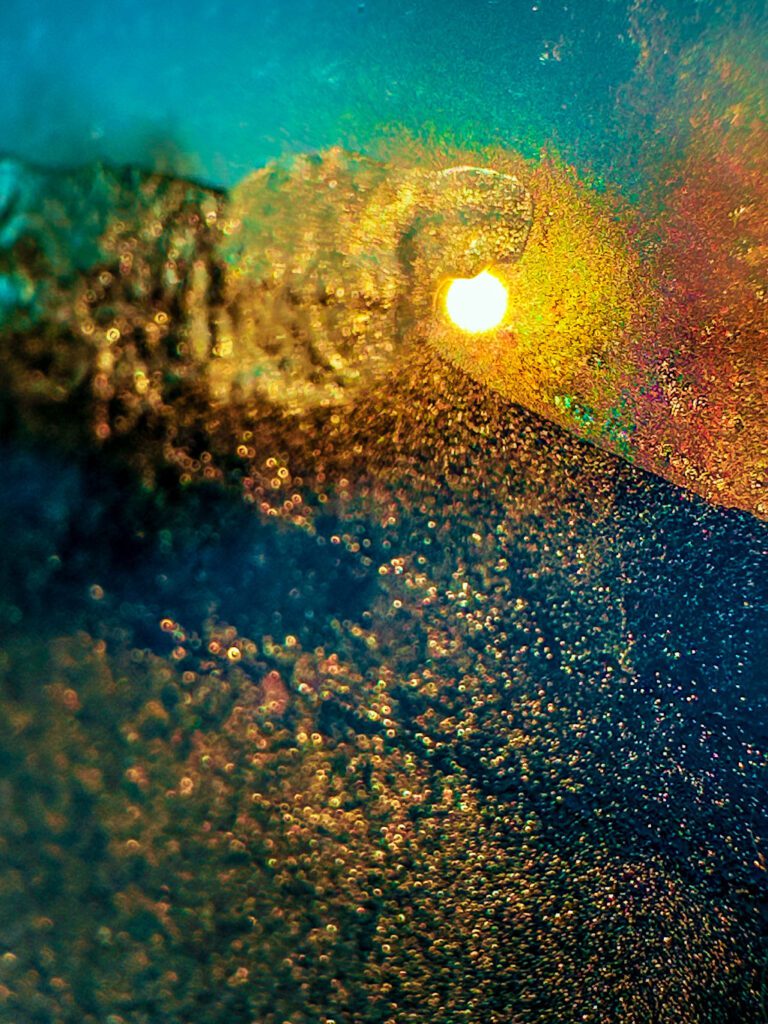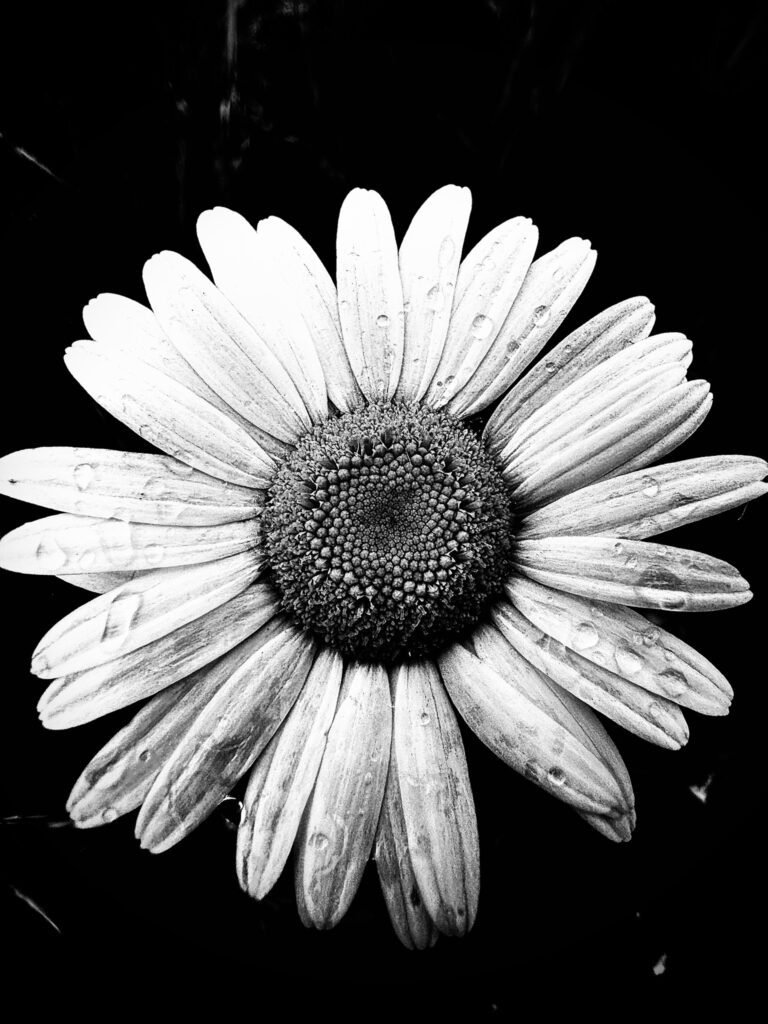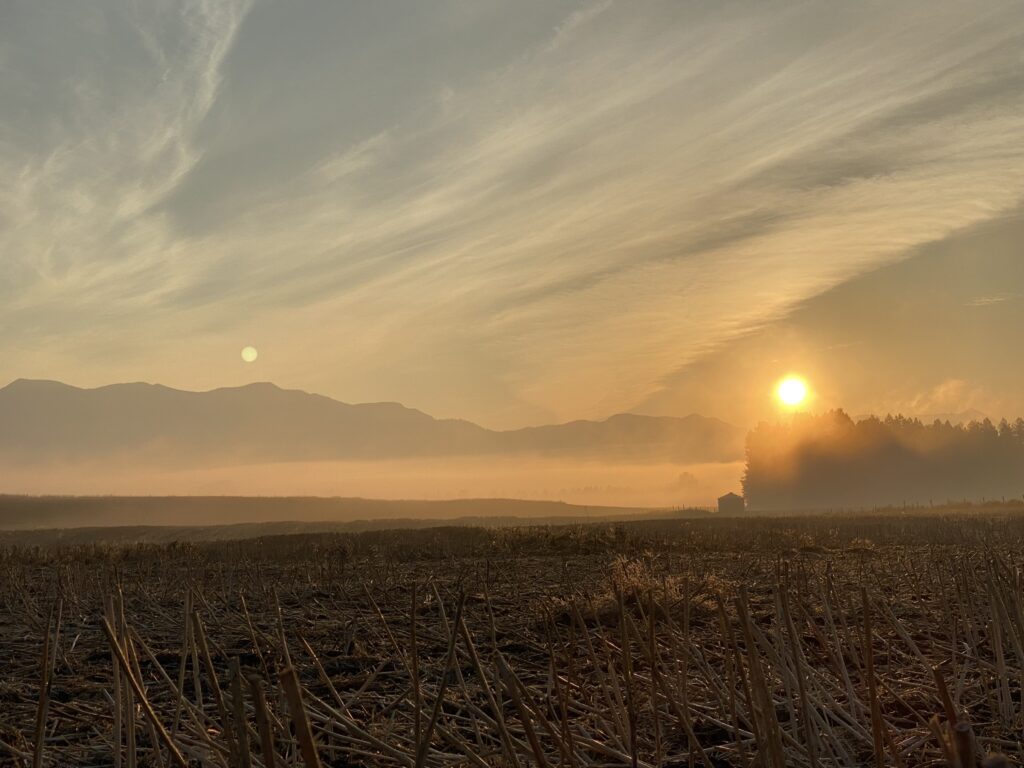In the vastness of existence, we often find ourselves grasping for a sense of identity, a singular thread that we can call our own. Yet, as we tug at this thread, we begin to unravel a complex web of interconnectedness that challenges our very notions of selfhood. Where do we belong? Who are we, really?
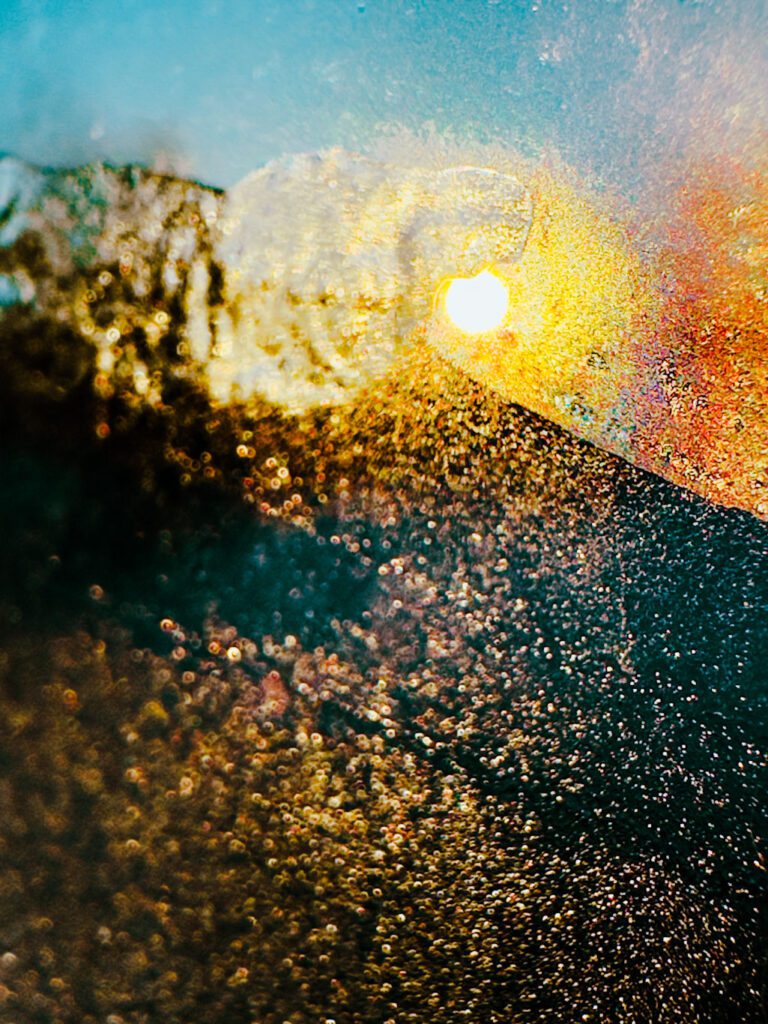
The Sea of Knowledge
Exploring the vast, interconnected nature of knowledge
Knowledge is a sea—vast, wild, roiling, glassy, littered, teaming, interconnected—one part unknown to other parts but all parts touching. Let me clarify that I am not discussing academic knowledge, the kind that has been verified, documented, bound, shelved, printed, labeled, and categorized. Seen. The knowledge that is validated with science’s almighty, omnipresent seal of authority and approval— these are human knowledges, slices of knowledge, by some humans, just a few, a select, noticed few. At least I am not speaking only of this knowledge.
Redefining “We”
I’m hinting at what we might know. We. And here is where I struggle, where I lose footing on the small map of shifting earth that rises up out of the crashing sea as my mind struggles to gain purchase, to grasp. Because, who are we? It is common to want to define ‘we’ as similar or like. We humans. We people. We animals. We. But we are much more than this. We are a chorus of biological narratives (cosmic, geological, chemical narratives), a symphony of ecological interactions, a whispering gallery of ancestral voices, an endless susurration of quantum possibilities.
We are the wolf and the woman, both hunted and haunted, both feared and revered, each embodying the spirit of freedom and the weight of story, of myth.
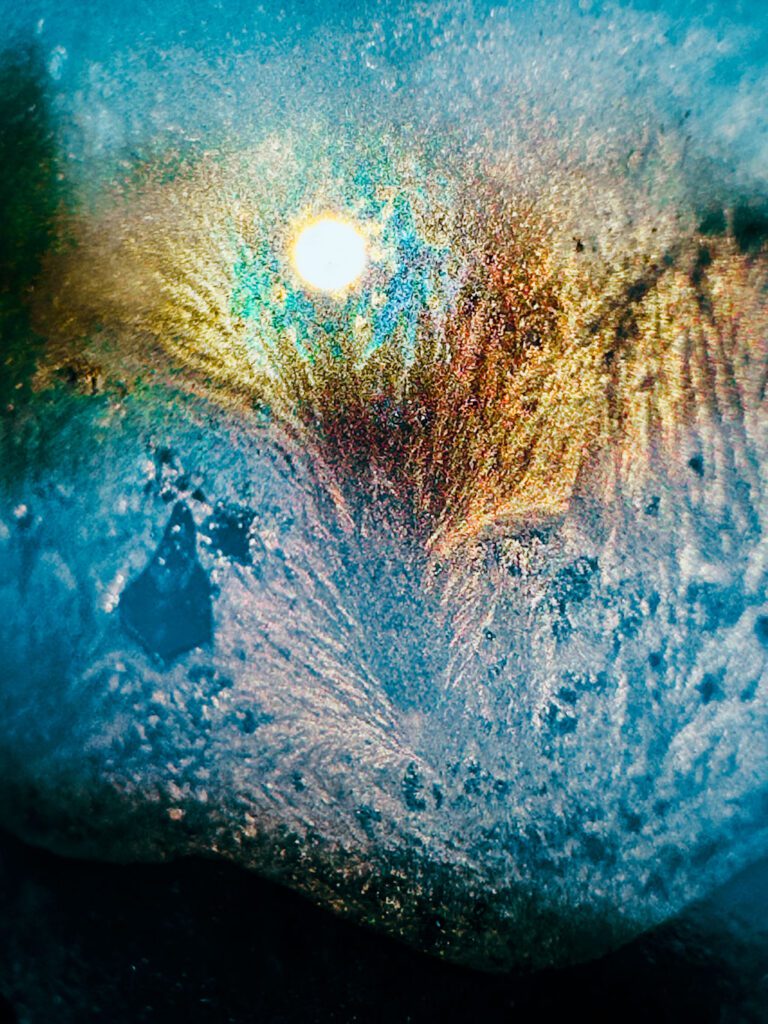
The Viral and Microbial Self
We are the microbes within and the stars above, the ancient rock beneath, and the fleeting wisp of cloud that shades the path, and the wind and time that illuminates the path again. We are the uncategorizable uncountable.
We, who are designated as the living, are the product of the encoding of the double helix within us, transformed and transcribed, edited and changed by the myriad actions of existence. We are etched by viral vectors that slip, violently or otherwise, into our biological story, inscribing their own myths within our cells. (And are those viral vectors living too?)
We are sculpted by the microbial companions that inhabit us, contributing to our symphonic cacophony with their unseen innovations and intelligent actions and adaptions. We individual thinking in-charge humans just might choose whom we love not because we love them but because the microbes within us do. And in the tasting of another, in the strange mouth-to-mouth we humans engage in when testing the waters of comparability and attraction, we take in these unseen beings and they move, silently, into the diversity of our organism. Becoming.
Who, even, are we?
We are sculpted by geological forces that shape and mold our collective being in slow magic. We are etched by climatic weather patterns that have left impressions upon our life processes, like the etching of wind at a cliffside.
We.
Each of these agents—viral, microbial, geological, meteorological—are actors. Gods contributing to the realization of existence. These do not simply change us; they become us. They are us.
We.
Existence is not merely the sum of an amalgam of different outputs of varied genetic blueprints but the ongoing, fluid, moving record of the conversation between all things. The output of this encoding is the mind-bending diversity of being. It is the sea.
Unbelonging and Belonging
And it is in this sea of knowing that I float. Adrift. Sometimes, paddling furiously, fueled by academic insight, seeking to chart the unexplored, and at other times, wanting to or not, the currents of existence simply carry me (sometimes dashing me upon rocks and sometimes delivering me to new shores).
The traditional halls of scholarship—with their Deleuzean plateaus and Foucauldian discourses, their Harawayan cyborgs and Spinozan ethics—wake me in the middle of the night with their siren’s call, but it is not a song of gentle welcoming, it is a discordant wail that feels at odds with the rhythm of my heartbeat, my breath. But it pulls me, compels me with its homelike familiarity nonetheless.
But even then, I am only ever halfway there.
I reside in the liminal middle of this discordant thought, where the edges of philosophy, anthropology, psychology, and sociology blur and blend and mix and settle at the edges of the big sea. I am flotsam in the intellectual tide. Unbelonging but present. Hoping to be pushed to depths where the shifting truths that deconstruct the universe reside, but knowing better than to count on it.
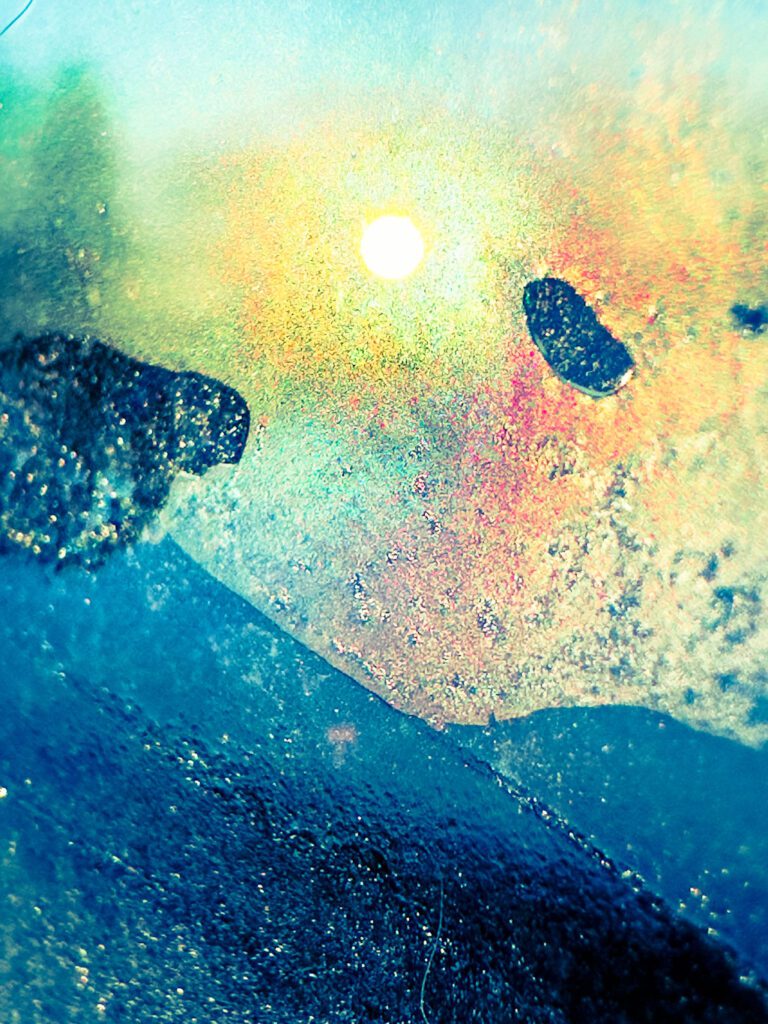
It is in this sea of knowing that I float. Adrift. Sometimes paddling furiously, fueled by academic insight, seeking to chart the unexplored. And at other times, wanting to or not, the currents of existence simply carry me (sometimes dashing me upon the rocks and sometimes delivering me to new shores).
In between gasps for air and oxygen, in between spitting the salt from my lungs, I sometimes find the audacity to ask: What is the nature of interconnectedness? How do we define self when self is an indefinable multitude? What fairytale has been told that has spun the collective into individual strands of fools-gold? What new meanings can we cocreate when we see the world not as a collection of categorized, individualized, singular entities but as a continuous conversation of connected enmeshed, fluidly active existence?
It is here, in the foam at the edges of the contradictions inherent in these swirling waters, that I am nearly drowned every moment and simultaneously where I find myself most alive.
The Rhizomatic Mirror
Me. We. Alive. An assembly of encounters, each breath a convergence with the animate and the inanimate, where distinctions imposed by conventional thought are useless. Every moment unfolds into an assemblage, a rhizomatic expansion across temporal landscapes, knowledge and emotion, self and other, then and now. I identify with the rhizome, that Deluzian metaphor for the ceaselessly continually changing map of being and becoming that resists the arborescent model of rooted, linear progression. Resists and flees from finite categorization.
And still, the question rises, bobs continually at the surface: Who am I to attempt such flights of thought, to scribble nameless courses through unknown seas? The audacity! I am one of trillions. Insignificant. Less than a moment. Less than a moment divided in perpetuity. And yet how can insignificance possibly exist along the bifurcations of rhizomatic interminglings? I am moved by a vision that sees each intersection, each unfolding encounter as a node of potential—a unique chance of breaking upward from below that has the possibility for greening new ways of thinking alongside and becoming with.
Becoming
My own journey has revealed to me the potency of ‘becoming’, a central theme of Deleuze and Guattari’s philosophy. I become, with each encounter, evolving, expanding, refusing imposed identity and category. Refusing one way or another. Academia or Mundanity, Mindlife or Heartlife. Instead, I inhabit the liminal within the liminal. An out-of-sync wallflower at the edges of the conversations between intellectual giants and yet the other world, the ‘real’ world, in its tangible nowness, seems equally distant, its rhythms just as discordant.
I find that it might be important that I inhabit the very spaces I seek to understand. And yes, I use scholarly methods, but I resist them. I seek theory in order to bend it sideways and turn it upside down. It is in theory that I find language and edges of ideas, that I encounter thought that generates other ways of seeing and knowing and being alongside the seen and unseen, the past, the present, the future, with the ancestors in my bones, the minerals in my blood, and the microbes teeming in my center.
Undoing Aloneness
“A Thousand Plateaus” offers me a language of multiplicity, a framework that validates my sense of dislocation as a beautiful, harmonic, discordant, ugly space of creative potential. I hold tight to this. There are no singular truths offered here, but instead, a multitude of plateaus, each one a world, each plateau a stepping-off point for the Fool in a journey that defies the linear, the hierarchical, the separate, the alone.
I suppose this essay is a manifesto of sorts, or at least a personal reminder if not a declaration of my intent to explore the rhizomatic web of existence with the totality of my being—intellect intertwined with emotion, theory fused with body, Mindlife, Heartlife. I am and will continue to be a cosmo-orgasmic combustible node where new routes might be charted if only in my own understanding.
As for belonging outside of this, I refuse it. Instead I desire to understand belonging from here, to unravel the complexities of connection and separation, of presence and absence. To see the hidden ties the human has with the hyperinhabited more than human everything.
And in the End
I am small. Just an encounter. An assemblage of motion, microbes, memories, and moments. Each step I take is onto and off of a plateau, the Fool repeatedly.
Maybe my work, then, is a mirror of the rhizomatic nature of existence where every being, every concept, every motion, and emotion has the potential to connect, to affect, and to be affected. Ultimately, perhaps the point might be to undo aloneness. Or to see that it might not be what we imagine it to be. Unspin fools-gold into myths of belonging.



